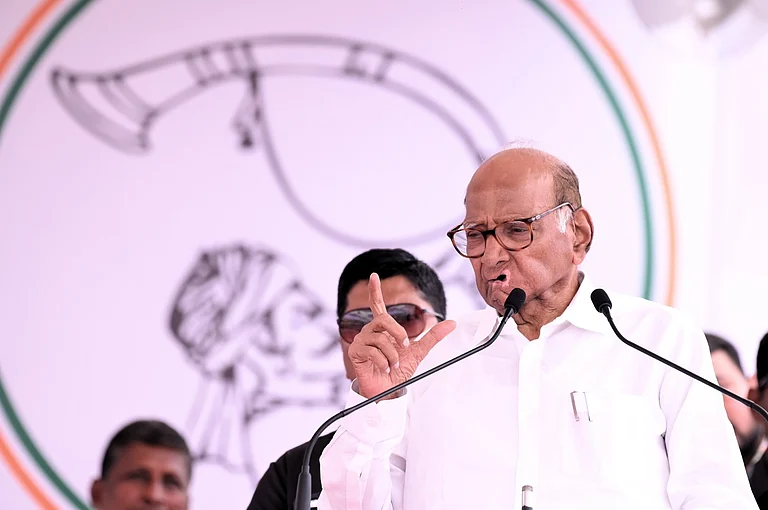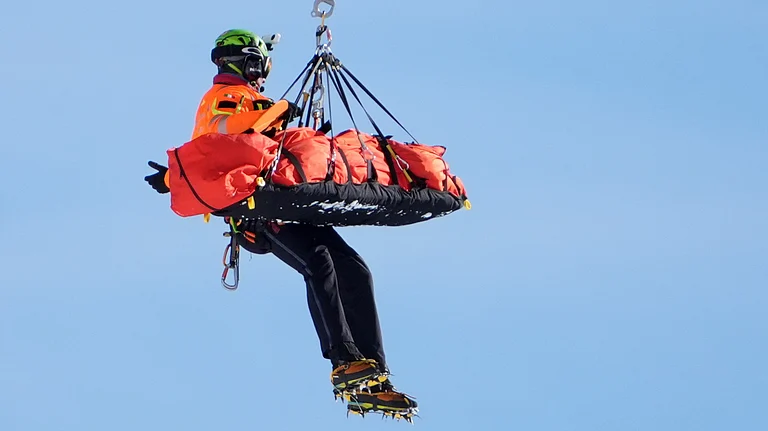What we call the beginning is often the end
And to make an end is to make a beginning
T.S. Eliot
It was the mother of all years for my country. The Lahore summit in February was a watershed not only in Indo-Pak relations but also in civil-military matters within Pakistan. Even as the two prime ministers were toasting the beginning of a new era in peaceful coexistence in Lahore, Kargil was being primed to put an end to it. In the aftermath of the strategic failure in Kargil this June, it was clear that either the reckless Pakistani prime minister, Nawaz Sharif, or the audacious army chief, Gen Pervez Musharraf, would have to go. The irony is that when the prime minister with the largest electoral mandate in Pakistans 50-year-old history was booted out by his handpicked army chief, the people of Pakistan cheered the end of his civilian regime rather than frown upon the beginning of a new one by his military detractor.
The ironies have since piled up. Nawaz Sharif ran a "democratic" government which was unpopular and despotic in the extreme. But Musharraf heads a "dictatorial" government which is, so far, surprisingly democratic and benign. Further, Sharif is to be tried for hijacking, kidnapping and "waging war against Pakistan" in a special anti-terrorist court which he personally insisted on setting up last year. At the time, human rights groups, jurists, opposition politicians and the press had protested such "kangaroo" courts. But Sharif had spurned their advice. Today, he is protesting his trial by the same anti-terrorist court and few sympathise with his plight.
On a more personal note, Im reminded of my own predicament at Sharifs hands after I delivered a speech about "Pakistan on the eve of the new millennium" at the IIC in New Delhi this April. Angry about a spate of investigative stories and editorials in my paper about his corrupt family, the Sharif government seized the chance to call me a raw agent, accused me of sedition, arrested me, beat me up and confined me to a solitary room in a "safe" house somewhere in Rawalpindi. Sharif then ordered the ISI and the army to court-martial me. When my wife filed a habeas corpus petition before the Lahore High Court and demanded my whereabouts be revealed, the attorney-general of Pakistan told the judge that the court had no jurisdiction in the matter. Although the judge meekly agreed, the government had to set me free a month later when the ISI, army and Supreme Court refused to allow Sharif to rest his gun upon their shoulders and mow me down. The international community also woke up to the fascist nature of the Sharif regime.
Imagine, therefore, the buzz in the same Lahore High Court when, two weeks ago, a habeas corpus petition was filed by Sharifs relative, demanding that Sharif be produced and set free in court. The judge asked the petitioner about the fate of a similar prayer in the "Najam Sethi case". Finding the petitioner dumbstruck, the judge promptly turned his plea down. Sharif has since complained that he was detained in a small room, without sunlight, somewhere in the outskirts of Rawalpindi, was denied contact with anyone and was without any access to newspapers, books, radio and television. I had complained in much the same manner but then nobody was listening. Or so I had thought. This April, after I told the audience in New Delhi about the multi-dimensional crises faced by Pakistan on the eve of a new century, I added: "My hope is that some institution will throw up the leadership with the courage, vision and integrity to steer Pakistan out of the woods. My fear is that if this doesnt happen soon, it may be too late." Have my hopes materialised? Or will my fears come true?
There are some good signs. Gen Pervez Musharraf is a reluctant coup-maker. Despite mutual suspicions of bad faith, the fact is if Sharif hadnt pulled the gun on him, the general would have served his term and gone home in due course. So this was not a pre-planned coup by a politically ambitious general out of step with current realities. Indeed, that is one reason why the new government has been so slow to unveil its thinking on what happens next. It is also heartening to know that instead of hiding his head in the sand like an ostrich, Gen Musharraf has made no bones about the task that confronts him. He says that "Pakistan has hit rock bottom", a confession about the myriad problems facing Pakistan which echoes my own thinking and analysis.
Even better, Pakistans "chief executive" wants to help build a "new" Pakistan with "true" democracy. To that end, hes listed a seven-point agenda for the reform of state and society - including devolution of power, sweeping accountability, Islamic moderation, economic revival, womens empowerment, minority safeguards, poverty alleviation, etc - which would do any budding social democrat proud. Best of all, most fundamental rights, including freedom of the press and courts, are alive and kicking under the new regime - which is much more than could be said for his predecessor. Its also comforting to know that the civilians selected by Musharraf to help him run the state are not tainted by allegations of corruption or nepotism. But is all this enough to build a new and better Pakistan? I have my doubts, even at the best of times.
Apart from the militarys bad record as rulers and despite the obvious sincerity of the current juntas efforts, I wonder if they possess the critical mixture of courage, integrity and vision needed to lead Pakistan into the next century. After two months, theres no bold economic plan on the anvil. Accountability of the corrupt isnt proceeding according to popular expectations. No time-table for the restoration of democracy has been given. The cabinets are mostly stuffed with status-quo types. The government seems determined to stick to a foreign policy, especially vis-a-vis the region, which hasnt earned too many points from the international community. The hijacking trial against Sharif, however strong, seems like a case of misplaced priorities, especially when evidence of corruption and misuse of power couldve been used against him and his cohorts with swifter effect. And Pakistans elites show no signs of making the sacrifices needed to rebuild their country.
What makes me particularly concerned is that Indo-Pak relations may not improve much in the foreseeable future. Gen Musharraf says Islamabad wont talk to India unless the core issue of Kashmir is put on the agenda. Mr Vajpayee retorts that Pakistan must regain Indias lost "trust" and confidence before a substantive dialogue a la Lahore can begin. In fact, New Delhi seems determined to further isolate Pakistan internationally by continuing to deny legitimacy to the current military junta. Meanwhile, India is upping its defence expenditure, signing multi-billion dollar arms agreements with Moscow, unveiling ambitious nuclear agendas, and cosying up to Washington in an effort to not only gatecrash the Security Council but also become South Asias sole hegemonic power.
THIS is bound to increase Pakistans sense of insecurity and strengthen the forces of xenophobia and Islamic fundamentalism. Im afraid such mutually hostile tendencies in the subcontinent dont bode well for the future of regional peace. I would therefore like to see several things happening in the next year or two in Pakistan. First, a step-by-step road-map for the restoration of democracy in two years at the most. Second, convicting Sharif, Benazir Bhutto and others of their ilk for corruption and misuse of power so they cannot return to power and haunt us in the new century. Third, a revamping of the economy so that untaxed incomes of landlords, traders and businessmen are brought into the accounting system. Fourth, a change of tack in the countrys foreign policy so that the concept of strategic security is given a broader and more enduring meaning than the current focus on purely military matters. Fifth, a vision of Islam as a moderate, benign and just force, at peace with itself and with the world. What are the chances of all this coming true? I really dont know, but I continue to take comfort from the words of Eliot:
We shall not cease from exploration
And know the place for the first time.
(The author is the editor of The Friday Times, Lahore.)


























